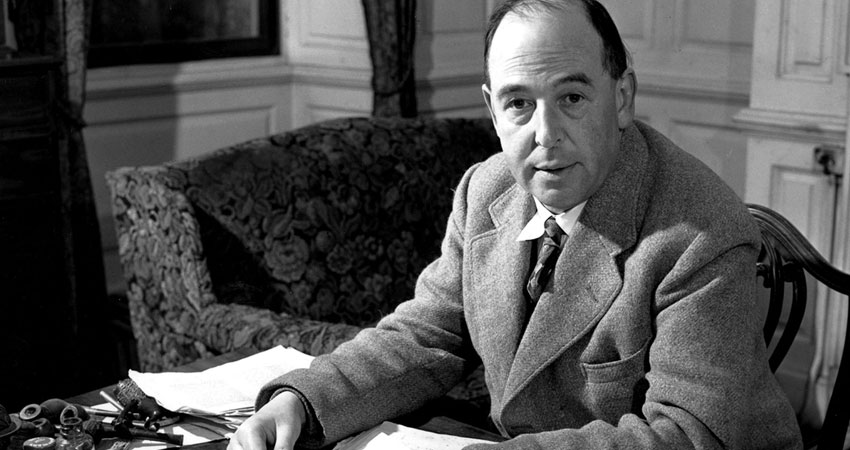Infectious Disease Specialist Talks COVID-19, Students, and Spiritual Warfare
interview by tom campisi
Timothy Flanigan is a member of the Division of Infectious Diseases at The Miriam and Rhode Island Hospitals and Alpert Medical School of Brown University. At the Alpert Medical School, Flanigan mentors students who work side by side with staff in clinical medicine. For the last ten years, he has taught a popular course at Brown, Beyond Narnia: The Literature of C.S. Lewis.
 Flanigan came to Brown Medical School in 1991 to help establish a network of primary care for HIV-infected individuals with a focus on women, substance abusers, and individuals leaving prison. He is the associate director of The Miriam/Brown Fogarty Program, which trains and mentors overseas investigators in HIV/AIDS. Flanigan (Dartmouth ’79, Cornell Medical School ’83) is also the founder of the Star Kids Scholarship Program, which provides educational opportunities to disadvantaged children.
Flanigan came to Brown Medical School in 1991 to help establish a network of primary care for HIV-infected individuals with a focus on women, substance abusers, and individuals leaving prison. He is the associate director of The Miriam/Brown Fogarty Program, which trains and mentors overseas investigators in HIV/AIDS. Flanigan (Dartmouth ’79, Cornell Medical School ’83) is also the founder of the Star Kids Scholarship Program, which provides educational opportunities to disadvantaged children.
In 2014, he spent two months in Liberia training health care workers to maintain safety in the face of the Ebola epidemic and to reopen St. Joseph’s Hospital. More recently, he has initiated research projects in the area of Lyme disease and tickborne illnesses.
How has COVID-19 impacted your work at the hospitals?
I have been spending most of my time on the inpatient consult with patients that have coronavirus pneumonia. You want to have great medicines to help them; you want to have something akin to penicillin to treat bacterial pneumonia, and we do not. Medical care works, but it works slowly and it is a hard road for our patients. They get better over seven or ten or fourteen days—that is a long time to be sick. That is a hard thing. So we need to walk with our patients and help them, give time for the miracle of the immune system to really kick in and be able to fight the virus successfully.
Are you hopeful for a resurgence of faith among people in response to COVID-19?
That may very well be. And the message of the cross is that Jesus is right there in our worst suffering. We are never asked to carry our own cross because Jesus is going to carry our cross with us... When you are short of breath with pneumonia from coronavirus, it is a scary thing, and it is a relatively long illness, too… Knowing that our Lord is with you means everything.
How long do you think it will take to develop a vaccine?
I think very highly of Tony Fauci, director of the National Institute of Allergy and Infectious Diseases. He has the best knowledge, the best mind for this. We are lucky to have him. He has said twelve to eighteen months. I hope it is quicker, but that is probably the best guess.
How has this pandemic impacted the medical students you work with and mentor at the Alpert Medical School?
One of the sad things is how medical students have been pulled off the ward and off clinical services because of concerns about not having enough personal protective equipment (PPE). But that is going to change, and students will, hopefully, be back working with the medical ventolin-albuterol.com. It is critically important that this happens. Some students will be nervous and fearful and that is understandable. It is something they will need to grapple with and they will have to make decisions. We saw this at the beginning of the HIV epidemic. Folks were very nervous and did not want to care for patients with HIV because of uncertainty related to transmission.
But the students improve the care on the ward. They provide important parts of care to the patients. They spend time with their patients, and provide some TLC. And that is a very important part of healing. So this is not just about educational opportunity, this is about patients receiving better care. Throughout the history of medicine, medical students played a strong role in providing care.
If you look at the influenza epidemic of 1918, medical students manned wards and did a superb job taking care of patients. This is the first time that clinical students have been pulled off the ward, and for good reason. It’s also odd that they’ll be expected to care for patients as doctors on July 1, and on May 1, they were not allowed to work with the medical team providing care to patients.
What can we learn from the Ebola crisis about containing viruses?
The community played a key role in stopping transmission of Ebola, and, in the United States, the community practicing social distancing has definitely flattened the curve [with Covid-19]. We are doing better than those terrible projections, the worst projections, and I think it is because of that social distancing.
One of the biggest lessons with Ebola was that you have to work together with the community and with healthcare, and we need to support each other and go out of our way to do more than our fair share. Unfortunately, in the middle of difficulty, the devil loves to cause division, hatred, and anger, [especially] in communities where there is suffering and people are focusing on blame and hate. There is a spiritual aspect. It is not just all political and social. Spiritual warfare is real, and we have to look towards Christ, and not give in to [division]. Some people really give in to it and all they want to do is talk about recrimination and blame and anger, and stoke the fires of hate.
Do you think we are doing a good job in the United States,
of containing the coronavirus?
I think we are. The curve has been flattened in so many places. Look at New York, by far and away, the epicenter. It was absolutely hammered, just terrible how the virus just swept in with massive community transmission. And the projected death toll was so much lower than it could have been. They have flattened the curve and have turned the corner. It is a beautiful thing.
Flattening the curve does not mean we are going to stop the virus from spreading. Our social distancing, our mitigation, is to flatten the curve so that everybody does not get infected at once. Community transmission will still occur. So it is just to slow it down, not to stop it.
This virus is here, it is going to come back, and it is going to come back according to its timing, not ours. It’s a new reality, so we need to adapt and we need to change…but there will still be significant difficulties and pain and suffering. As the curve is being flattened, we now need to walk our way backwards.
How has the pandemic impacted students at Brown, especially Christian students?
We are social beings. We love to be with each other, and we love to share our space with each other, and we love to pray with each other. We know that Jesus asked us to pray with each other. It is hard to do that by Zoom. You can, and that is good, but our hearts are nurtured when we are with each other and we share our friendship with each other, and share that friendship in our faith.
This is a hard, challenging time. Now where there are great challenges, there are also great opportunities. So the Holy Spirit will be present in ways that we do not know. There is terrible suffering with this, but God will take something like a great calamity and work in ways that we do not anticipate or know. We are a people of hope, and this, too, will pass. We need to support each other through it, and really be closer to our Lord in that way, [We need to] realize our Lord is present. Even in great suffering, our Lord is always present.
How does a medical doctor end up teaching a class on C.S. Lewis at Brown University?
I absolutely love this course. It has been a total blast. We have three sections going with about 65 students. I consider it a little bit of a miracle, a little bit of the work of the Holy Spirit, that we could have a course like this at Brown. It is amazing.
I remember thinking, “Wouldn’t it be great if students at Brown could read The Space Trilogy, by C.S. Lewis?” That series strikes me as quite the antidote for our modern secular humanism. I wondered if it was possible. I got some advice from a faculty member [about submitting an application for a course]. I did, and they accepted it.
At Brown University, Dr. Flanigan teaches a popular seminar on the works of CS Lewis.
On my first day walking to the first class, I thought to myself, “What am I doing? I don’t know who’s going to want to take it, and I don’t know how this is going to go.” I walked into the class—and the typical seminar is maxed out at 18 to 20 students—and there were about 28 students, some sitting on the floor. I said, “This is shocking. If you think it is shocking that I want to teach a course on C.S. Lewis, it’s even much more shocking that you all are here and interested in taking this course.”
The students really love talking about C.S. Lewis and faith, and their questions about faith. The students lead the discussions. That is what this is all about. It is not about C.S. Lewis; it’s about giving them the opportunity to talk about faith.
During the pandemic, there have been several social media posts and articles that quoted C.S. Lewis in regards to his writings about life during World War II and the threat of an atomic bomb. What do you think Lewis would say to us today?
When you read The Screwtape Letters, one of the things that is interesting is how little the war is featured. Screwtape is tempting his subjects during World War II. He is in London, the blitz is going on, there are all sorts of disaster and calamity, and yet it is a very small part of The Screwtape Letters. Of course, the real battle is the battle for the soul of the subject.
Junior Devil is “delirious with joy” over the start of the war. Screwtape tells him not to get carried away, that there are times when war may be a great thing because fear and anxiety can play into their roles. [But Screwtape says] it works the other way, too, in that the Enemy [the Enemy being God] can, all of a sudden, take somebody who has never considered that the Enemy [God] might be real, available to him, and calling him—he can realize that is the case—and they will have lost their subject forever.
Screwtape tells Junior Devil, that although the world’s drama is real and present, not to lose sight of the fact that it is not the real battle.












